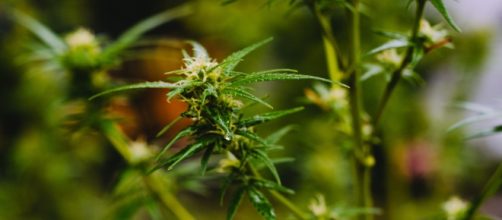Marijuana Decriminalization was approved in Atlanta, Georgia earlier this week. City officials unanimously passed an ordinance that essentially eliminates jail time for anyone possessing a small amount of cannabis.
Much like a traffic citation, someone in Atlanta possessing an ounce or less of marijuana will receive a ticket and be fined $75 instead of being arrested. Under the old rules, a person would face six months in jail and a $1,000 fine if caught by police.
The marijuana decriminalization measure was introduced to city legislators by Councilman Kwanza Hall in March.
He proposed changes to the previous cannabis laws because he believes they unfairly targeted African-Americans. Per Hall’s statistics, nearly 92 percent of people imprisoned for pot possession are black.
Police have other things to do
In a recent interview with host Maria Boyton at Atlanta radio station V-103, Hall, who is currently running to be Atlanta’s next mayor, said the police need to focus on violent crime and not waste “money on penalizing the possession of less than an ounce.” Marijuana arrests often destroy the lives of families and law enforcement needs to concentrate “on real things that keep our citizens safe,” he added.
Despite calling cannabis a “gateway drug” at a press conference earlier this year, Atlanta Mayor Kasim Reed is expected to support the new marijuana decriminalization policy.
He has eight days to act on the ordinance, or the law will automatically go into effect. Once the new regulations are in place, city officials and law enforcement plan an aggressive campaign to educate citizens about the new rules.
Decriminalization is not legalization
While Atlanta’s ordinance decriminalizes marijuana, it does not make weed legal. Georgia state law still prohibits growing, selling, and possession of cannabis, regardless of amount. This means that even though city police will be issuing tickets, state and county law enforcers will still make arrests. However, Hall hopes the city council’s undisputed approval of marijuana decriminalization will send a clear message to lawmakers in the capital that reform of the state’s current drug policy is needed.
A growing movement
Atlanta is one of a handful of cities decriminalizing weed. Both Pittsburgh and Kansas have decriminalization laws on the books. Even though Nashville and Memphis also passed ordinances that allowed possession of small amounts of weed, Tennessee Governor Bill Haslam later signed a law that effectively reversed those rules.


